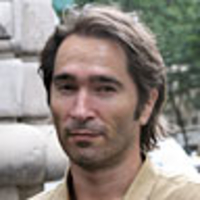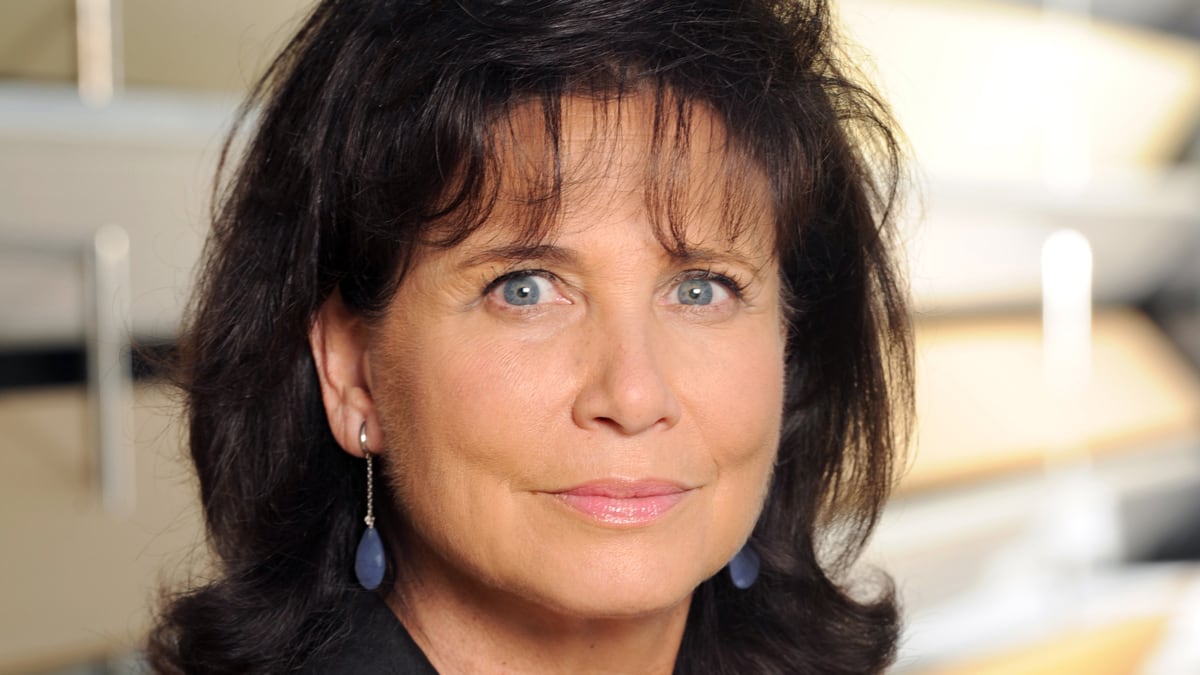Anne Sinclair has quietly endured eight months of humiliation, troubling French-woman-of-the-year adulation, invasive speculation, and even disgust.
In the time since the king-of-the-universe career of her husband, Dominique Strauss-Kahn, crumbled into a mire of sex-crimes allegations, Sinclair—who used to be a Diane Sawyer-meets-Barbara Walters-like figure in France—didn’t do a single interview with any of her former colleagues.
But as she prepares for her journalistic comeback—she will be the editorial director of the French Huffington Post site (that launches January 23)—a feisty Sinclair has finally broken her silence. And her wide-ranging interview with Anne-Cécile Sarfati, the deputy editor in chief of the French version of ELLE magazine, will undoubtedly get people talking. (To pump extra mileage out of its exclusive, the January 20 issue of the magazine showed up in kiosks a day early.)
Under the headline “Anne Sinclair: ‘I am neither a saint, nor a victim. I am a free woman,’” Sinclair addresses her husband’s troubles in New York, feminism, stepping into Arianna Huffington’s footsteps, the “Orwellian” invasion of her private life, and much more.
In the interview [see some French-language excerpts here, Sinclair acknowledged that she wouldn’t have been in a position to become the French Arianna Huffington if her husband’s career at the IMF and his political ambitions hadn’t collapsed. But the real substance of the interview has to do with how Sinclair lived through the nightmare in New York.

While she still gives no credence to the allegations of Nafissatou Diallo, the woman who accused Strauss-Kahn of sexual assault and attempted rape (see the exclusive Newsweek interview with Diallo here), Sinclair described her own feelings of violation at the hands of the relentless 21st-century media machine.
“Try to put yourself in my place: It is very violent to see your personal life scrutinized, dissected around the world, to hear people who think they are allowed to say what I should have done or said,” Sinclair explained. “To be an object of speculation, of permanent harassment to know what is happening in my home, has something about it that is Orwellian, totalitarian.”
Somewhat surprisingly, given the orgiastic tabloid coverage of the case in New York, Sinclair lauded American journalism in the interview. “There are trashy newspapers in the U.S., like everywhere, and violations of privacy. But, in regard to the big media, the press is demanding, precise, and hardworking.” She cited with awe that The New Yorker’s “25 fact checkers” even verify the color of a sweater mentioned in an article, while French media tend to be “lazy, less pointed, less precise.” (Sinclair acknowledged that such rigor won’t be possible at the French Huff Po, due to a lack of means, but she is encouraging a rigorous spirit among her small team of young journalists.) Asked if one of her employees suggests the French Huff Po post on the investigation into the alleged Carlton Hotel prostitution ring that her husband has been linked to, or on the civil process of Nafissatou Diallo against her husband, she replied that her online publication will cover any subjects that come up. “In that case, I don’t say that it will be me who writes the piece … but it will be covered and in the most professional way possible.”
Asked whether she understands why many women were troubled by her decision to stand by her man, Sinclair told the ELLE editor: “That some women felt disappointed in me, I am afraid to say, that it is their problem! I don’t need to understand them. They are expressing positions and feelings. I listen to them, but the idea that people can judge the attitude of someone in (his or her) private life is completely foreign to me. I wouldn’t allow myself to judge your personal life. People can think what they want.” Sinclair said that people who “appropriate my life are unbearable.”
As a journalist with decades of experience, Sinclair understands why the DSK scandal garnered so much attention, “But I find that on this occasion, all of the dikes that protected private life have been broken.”
The interviewer asked Sinclair to respond to feminist critics who have argued that by staying with DSK, she set back her gender and legitimized violence against women. “It is unacceptable for me to hear this because there was no violence. If there had been, the prosecutors would have pursued [the case]. They didn’t do it. It is, therefore, a term that I totally refuse. Violence horrifies me.”
(Manhattan District Attorney Cyrus Vance Jr. explained on January 18 that he asked the judge to drop the case because he simply could not be sure about what actually happened in Strauss-Kahn’s hotel room given serious doubts that arose about the reliability of the accuser. “As a prosecutor, you have to follow facts as you have them, when you have them. When those facts change, you have to, as a responsible prosecutor, deal with the changed outlook,” Vance told an audience at the law firm of Stroock & Stroock & Lavan LLP.)
Sinclair suggested that her critics aren’t real feminists, and that they did her real damage. “I would like to say that I, too, felt a great violence when certain self-proclaimed feminists unleashed themselves on me,” Sinclair said. “I am a feminist, I always have been; I always will be. I have been part of all of the battles, on abortion, on equality at work, on the dignity of women here and elsewhere, on the role of women in public life. I think I have done at least as much as packs of ‘feminists’ for the advancement of women in men’s fields... To be feminist is to battle for all that; it is not to interfere in the private life of other women, to decide in their place what is or isn’t moral.”
“Nobody knows what happens in the intimacy of couples, and I deny anyone the right to judge mine. I feel free in my judgments, my actions, I decide about my life in all independence. I am neither a saint nor a victim; I am a free woman. Each woman should be able to lead her life as she sees fit... To each her own.”
The interview ends after a final question: Is Sinclair still in love with her husband? Her answer: “That IS NONE OF YOUR BUSINESS!”






